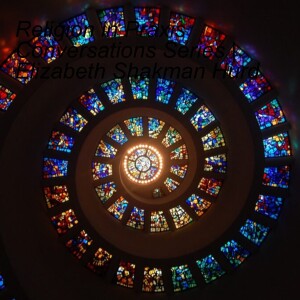
Monday Sep 26, 2022
Religion in Praxis Conversations Series | Anna Grzymala Busse
This is the thirteenth episode of the Praxis in Religion Conversation Series and the opening of a new season, in which the following questions in posed: How did the state arise in Europe? The canonical answer is Charles Tilly’s: “war made the state and the state made war.” The starting point is the fragmentation of territorial political authority in Europe after the collapse of the Carolingian empire in 888, and the ambitions of rulers in the early modern (1500-1700) era. To expand their rule, monarchs and princes fought bitter wars with other other—and to fund this increasingly costly warfare, they extracted taxes. Domestic institutions such as state administrations, fiscal offices, and parliaments arose in response to these needs. In these “bellecist” accounts, rulers who succeeded in building up the administrative and military apparatus of war went on to consolidate their territorial gains and ensure the survival of their states. These relentless pressures eventually meant fewer and bigger states, from as many as 500 independent states in Europe in 1500 to 30 four centuries later. In a current episode, Anna Grzymala Busse takes Charles Tilly to church, and questions each of these core pillars of the bellecist story. She shows that roots of many state institutions are found in the medieval era, not the early modern. Fragmentation was not simply a post-imperial legacy, but a sustained and deliberate policy.
----------------------------------------------
Music for the Conversation Series is generously provided by the Shavnabada Choir . The project author and the host of the Conversation Series is Dr. Tornike Metreveli.
----------------------------------------------
Religion and Theology is produced by Joel Kuhlin for the Center for Theology and Religious Studies. If you have comments or critique of this episode, or any other episodes of R&T, please contact us via the podcast's twitteraccount: @reloteol.
No comments yet. Be the first to say something!